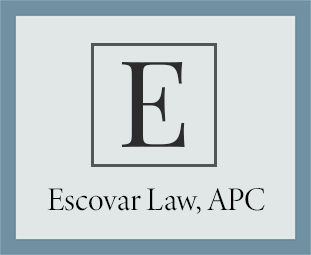In response to the COVID-19 pandemic impacting the world and our nation, the Governor of California and the Chief Justice of the California Supreme Court issued numerous orders which permitted the extension of time within which state criminal trials must commence. Following suit, local superior courts began to issue guidelines outlining how it would implement the orders from the Governor and Chief Justice.
Mr. Rodric Stanley, an in-custody defendant awaiting trial during this COVID-19 pandemic, filed a writ arguing that the orders are “unauthorized by statute and offend separation of powers principles.” Mr. Stanley had been charged with multiple counts of sex offenses against children and had been charged with enhancements for prior serious and violent felony convictions that he had previously committed. Mr. Stanley’s first trial on these charges resulted in a mistrial due to late disclosure of discovery by the People and his new trial was set for April 20, 2020, with a last day of April 30, 2020.
However, on March 23, 2020, Chief Justice Tani Cantil-Sakauye issued an emergency statewide order suspending all jury trials and continuing them for a period of 60 days. In justification of the order, Chief Justice Cantil-Sakauye explained that courts across the state cannot comply with the CDC and other health departments recommendations for preventing the spread of COVID-19 if they continue to operate as they have in the past and, thus, it would be nearly impossible for courts to assemble juries and still be in compliance with health guidelines. On April 29, 2020, this 60 day continuance of criminal jury trials was extended an additional 30 days – the total extension of 90 days was to be calculated from the last date on which the trial initially could have been conducted under Penal Code section 1382. Accordingly, Mr. Stanley’s trial was continued pursuant to the orders and he filed a motion to dismiss for violating his right to a speedy trial pursuant to Penal Code section 1382. This motion was denied and Mr. Stanley filed a writ to the court of appeal.
The defendant’s principal argument in his writ was that the Governor and Chief Justice’s statewide emergency orders, effectively continuing the statutory last day for defendant’s trial by 90 days, was unauthorized by statute and violated the separation of powers principles. The court of appeal determined that the petition may be “resolved on a much simpler basis” and determined that under Penal Code section 1382, the trial court in Mr. Stanley’s matter was justified in finding that the COVID-19 pandemic constituted “good cause” to continue the trial within the parameters of the Chief Justice’s emergency orders and the writ was denied.
We can help you now! Call now for a free telephonic consultation at 626.577.7700!
DISCLAIMER:
The information in this blog post (“post”) is provided for general informational purposes only, and may not reflect the current law in your jurisdiction. No information contained in this post should be construed as legal advice from Escovar & Avila, LLP or the individual author, nor is it intended to be a substitute for legal counsel on any subject matter. No reader of this post should act or refrain from acting on the basis of any information included in, or accessible through, this Post without seeking the appropriate legal or other professional advice on the particular facts and circumstances at issue from a lawyer licensed in the recipient’s state, country or other appropriate licensing jurisdiction. The information on this website is a communication and is for informational purposes only. The facts of every case are unique and nothing on this page or on this website should be taken as legal advice for any individual case or situation. The information on this website is not intended to create an attorney-client relationship and viewing of this information does not create an attorney-client relationship. The result portrayed in this advertisement was dependent on the facts of this case. Results will differ if based on different facts.

